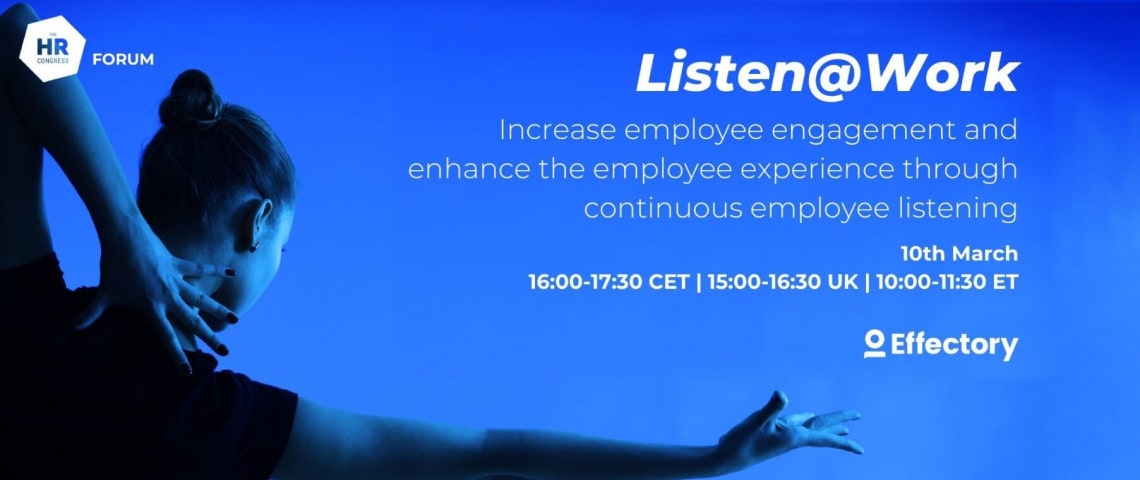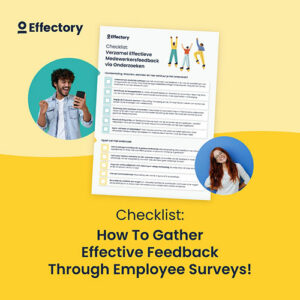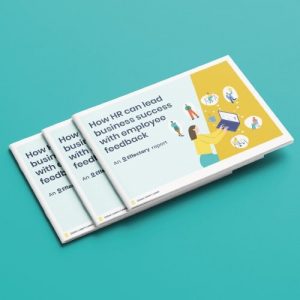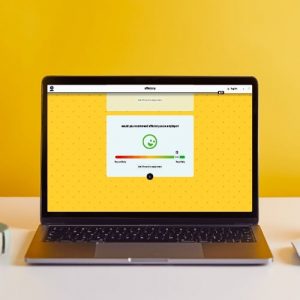As part of the HR Congress Forum, Effectory hosted a webinar session about employee listening, employee feedback, and organizational change management. The session was designed to inspire HR professions and managers to make a positive impact upon the working world.
The power of employee feedback - Effectory x The HR Congress Forum

We were very fortunate to welcome Exact’s Chief HR Officer, Florien de Nijs, Lea Klauk, Head of Learning & Development at Körber, and HR specialist and keynote speaker Sharon von Simson to the virtual stage. They were joined by Senior Engagement Specialist Arjen Swank, and the session’s host, Effectory’s Sander van Gelderen.
People are your most valuable resource
Sander began the session by highlighting the fact that employees are an organization’s most important resource. Employees take decisions, look after customers, patients, and clients. 80% of executives agree that employees are who keep a business running. Their engagement and wellbeing are a top priority. But only 29% of employees feel heard, and only 19% feel engaged.
There’s a gap between what we want to see in the workplace and what is actually happening. It’s time to bridge this divide with a people strategy informed by employee feedback.
Arjen was on hand to give an extensive overview of the importance of engaging employees. He described how a continuous listening landscape, in which employee feedback is consistently heard and acted upon, can play a vital role in ensuring engagement is increased and maintained.
How to gather feedback from your employees
The definitive checklist for creating your employee engagement survey.
DownloadAn employee listening landscape that makes an impact
Arjen explained that over the past few years, HR has gained a much more important role in companies and the C-suite. Executives have realized that their success isn’t only because of their products, but also because of their people, who provide great customer satisfaction and innovation.
This change has come about mostly because retaining and attracting great talent has become such a challenge. Although the times have been uncertain, we’ve witnessed the arrival of “the great resignation”. People have become highly critical of how their employer’s treat of their workforce.
In his role at Effectory, Arjen helps organizations create an optimal employee listening landscape and strategy. His work is all about facilitating the creation of an effective approach to employee feedback so that HR and leadership are able to really hear and respond to what employees are saying. The goal is to create a great employee experience and organizations which are future proof precisely because their people are engaged.
How to use employee listening to boost retention
Employee feedback is on the top of the agenda
While much effort by business over the past two years was put into simply surviving, it was also a great moment to innovate, especially when it came to ways of working and engaging employees.
There’s lot of research about the future of work, but whatever transformations take place, we need to keep people front and center because it’s a business’s human capital that will keep it competitive and agile. You don’t only need people: you need highly engaged people.
Don’t forget that “talent” isn’t only the younger generations. It includes all those in your organization with experience and ideas.
Arjen Swank
In addition, there’s a direct relationship between leadership and engagement. This is why you also need to measure the quality of leadership. If local management isn’t engaging the workforce, opinions on leadership teams and C-suite will also be low.
Without an effective employee listening strategy, it’s impossible to track employees’ opinions and feelings on important topics such as leadership, and it’s harder to support employees to perform better, sooner, and for longer.
Implementing a continuous listening strategy means that organizations can check in with employees much more regularly. The aim is to increase the value of the employee lifecycle.
The value of employee feedback
Feedback is interesting for all levels of an organization. For workers, it can be a moment of reflection but also an opportunity to see development potential. For regions and teams, feedback can inform data-driven decisions and strategies. Finally, the top level of an organization is increasingly using feedback to get a long-term outlook and make meta-analyses of their position both internally and in relation to the market.
With a continuous listening platform such as Effectory, organizations can collect relevant feedback when it’s needed. Strategic insights surveys performed at regular intervals allow HR to track core themes over long amounts of time. If there’s a new development which requires urgent attention, topic specific surveys can be designed to respond to these moments.
As well as this, you can target specific groups of people within a company as well as individual teams, and perform “triggered surveys” for key moments of the employee experience, such as after onboarding, when a promotion occurs, or when an employee exits, for example.
How HR can lead business success
HR and employee listening are crucial to business success. Here is how employee insights can help your organization.
DownloadDesigning and implementing a listening landscape
Before running a survey you need to think about the following aspects of employee listening:
- Reach (who can receive and complete a survey)
- Frequency (how often do you want to perform surveys)
- Length (how many questions should each survey contain)
- Content (what topics and themes will the survey cover)
- Coordination (who oversees the running of the survey)
- Ownership (who is in charge of following up on results)
- Support Level (is this a survey you need help with or can you manage it autonomously)
Taking ownership of the follow-up process is especially important. An employee survey will only really have impact if the feedback is reacted to and leads to actions. Creating manageable plans that managers will be able to implement means that feedback will become a vital and valued tool in your business.
To make surveys effective, every stakeholder – from the employees to leadership – need to be made aware of the relevancy of the survey. They need to be enabled to partake in surveys and to respond to the results in their own way. And the organization must be committed to embedding employee feedback into daily business.
Don’t just learn from failures – see what you’re doing well and take these as best practices that can inspire others in the organization.
Arjen Swank
Before performing an employee survey, it’s also important to think about your organization’s maturity level and in his presentation, Arjen provided a great way to visualize your maturity level. Map your current maturity against where you want to be. This helps you grow your listening strategy by identifying what aspects need to be worked on. You want to create a “maximum fit” to make sure your listening landscape is creating as much value as possible.
Three things to keep in mind about employee feedback
- Don’t let low results get you down. Celebrate them instead! This is an opportunity to learn and grow together.
- Bring feedback to the many: enable listening, learning, and action for everyone in your organization.
- Make sure your listening strategy is engaging and inclusive.
Giving and receiving feedback: an essential part of great leadership
Sharon von Simson is an HR professional and a keynote speaker. She is constantly thinking about what it is that inspires people at work.
She asked attendees to the live stream of our session to think about the best person they ever worked for, and how that person made you feel. Some of the answers that came back were: valued, trusted, and empowered.
These qualities are often offered in answer to this question, and this is why Sharon argues that “leadership is about creating positive emotions in other people.” Research by Gallup, which shows that employees want trust, compassion, stability, and hope from their managers and leadership, confirms this.
Leadership is a learnable skill
Sharon makes the case that leadership is a learnable skill because it is mostly about learning to inspire people. She calls this journey the “VIP process”, in which people learn how to communicate:
- Vision (where are we going, and why?)
- Importance (why the role you want someone to play is important)
- Personalize (explain to the person why they’re the perfect people for their tasks)
Leaders need to be embedded and interactive with their people. This is why giving continuous feedback is an important part of this process of becoming a great leader.
The trick to giving feedback is by telling people when they do things right.
Sharon von Simson
So how to give constructive advice? Sharon pointed to research that shows that people regularly need positive feedback in their working life, nearly daily, in order to feel open to criticism.
And it’s not just about giving feedback, of course, but also about receiving it. “Feedback is always a gift,” she says. Additionally, feedback will always be better received and given if you have a genuine, healthy relationship with the person you’re talking with.
Boost engagement: inspire a connection between people
For the panel discussion, Arjen, Sharon, and Florien were joined by Lea Klauk, Head of Learning and Development at Körber. In the session, they each discussed how crucial it is to make people feel inspired at work and to foster a sense of connection both to the organization and to other employees, especially now that hybrid working is the new normal.
As Lea explained, working virtually was quite typical at Körber before COVID. The pandemic brought a new emphasis on them making sure that they have processes in place that make people feel connected even when they’re physically apart. This project has been about making people feel part of something that they relate to and make sure that they see the “social glue” that exists throughout the company.
For Sharon, purpose is super important for fostering employee engagement, but so is giving individuals the opportunity to shine. Arjen pointed out that engagement and satisfaction are both heavily connected with purpose.
Engagement is transforming in 2022
It’s all about enabling your people
Sharon suggests giving employees space to find out what motivates and inspires them. There is always the risk of some employees losing alignment with an organization, which is why keeping an eye on engagement levels is so important. Florien says that the financial rewards aren’t the only reason people get up in the morning, and organizations should feed those other motivations, too.
They all agreed on the importance of an employee listening strategy for meeting the various challenges facing HR and organizations as we enter the future of work. Lea stressed the importance of making employees feel part of the feedback process: “It’s about enabling, teaching them about the process, picking the right questions, showing them how they’ll benefit from it, and Improving the relevancy of it in relation to them.”
Book a free demo. See our solutions in action.
Effectory is Europe's Leading provider of Employee Listening Solutions. Schedule a product demo and discover how to enhance your employees' engagement.
Demo request

